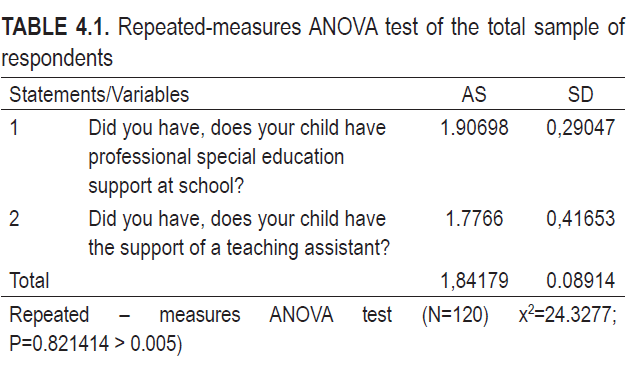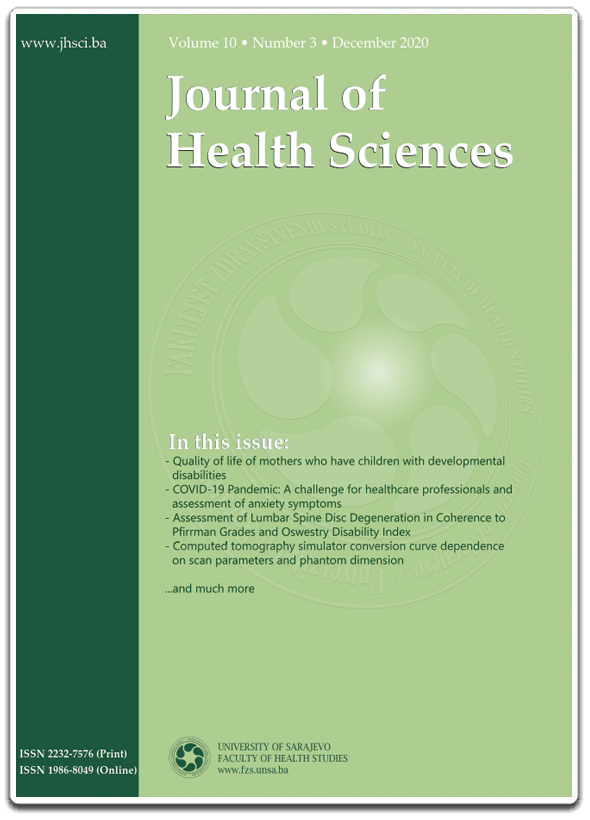Defectological support for educational inclusion of person with cerebral palsy and other associated disabilities
DOI:
https://doi.org/10.17532/jhsci.2022.1691Keywords:
Cerebral palsy, education, special, intellectual disability, developmental disabilities, curriculum, schoolsAbstract
Introduction: The education system of Federation of Bosnia and Herzegovina includes 60% of people with cerebral palsy (CP), hearing impairment and other associated difficulties, of which 37.50% in regular schools and 22.50% in special schools. From the total number of students, 44.44% attending schools according to the regular curriculum, and 55.56% according to the adjusted curriculum (1).
Methods: The study is retrospective and analytical-descriptive. The study was conducted on a sample of 120 respondents from four cantons of the Federation of Bosnia and Herzegovina. Each Canton was used as one subsample of respondents. The data are presented in tabular form using classical descriptive statistics methods. The parametric statistics, analysis of variance (ANOVA) at the level of statistical significance of 0.05 was used to examine the statistical significance of differences between the sub-samples of the respondents.
Results: The results of the study showed that persons with cerebral palsy, hearing impairment and other associated difficulties do not have adequate support in educational inclusion. Defectological support at school is provided for 17.50% of persons with cerebral palsy, hearing impairment and other associated difficulties, and only 6.66% of persons have the support of a teaching assistant.
Conclusion: Persons with cerebral palsy, hearing impairment and other associated difficulties do not have adequate support in educational inclusion. There is no statistically significant difference between the subsamples of respondents when it comes to special education support and assistant support in the educational inclusion.
Downloads

Downloads
Published
License
Copyright (c) 2022 Naim Salkić, Emira Švraka, Bakir Katana, Hadžan Konjo

This work is licensed under a Creative Commons Attribution 4.0 International License.










